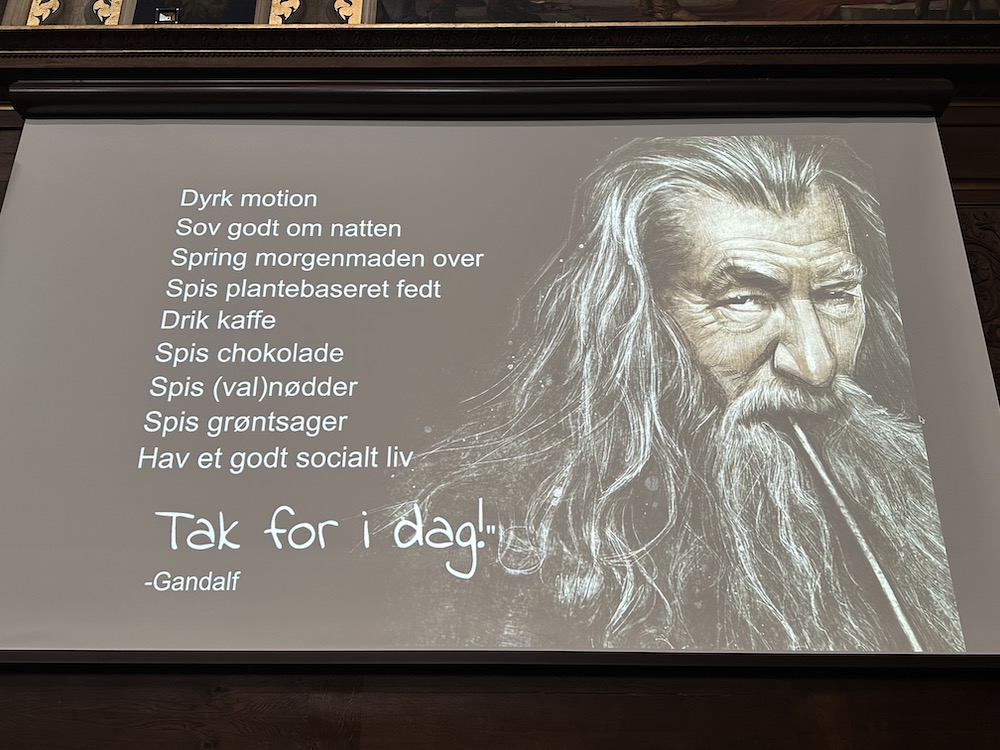One of the things many people fear is that with age they lose their cognitive functions. They become less able to concentrate and pay attention, so memory and reaction time decrease. Even if you do not get sick with dementia, for example, it is normal to experience a decline in your cognitive abilities with age. And this, of course, has a big impact on whether an older person can manage on their own and how long they can stay in their own home.
Just how your cognitive abilities decline, who it affects, and what you can do about it are some of the issues being researched by Gunhild Tidemann Okholm, an ageing researcher at the University of Copenhagen, KU.
She uses data from the Danish Conscription Database, which she helped establish when she was a student. It took five years to digitise all the yellow cardboard conscription board records of the more than 728,000 men born between 1939 and 1959. So today there is a digital database of these young men, aged 18-19, and their scores on the intelligence test they all were required to take as part of the examination of eligibility for military service.
“Because they were all born between 1939 and 1959, many of them had been to the conscription board examination before Denmark established the CPR number (in 1968). So we got a statistician to develop an algorithm that could identify the CPR numbers based on their name and birth date. That way, we could contact them via e-Boks or send a postcard,” says Gunhild Tidemann Okholm, Postdoc, and soon-to-be Assistant Professor.
“We invited some of these men, now in their 60-70s, to take the same intelligence test again. We got a total of 2662 men from all over Zealand who came to Copenhagen or Ballerup, to take the test and to fill in a questionnaire on lifestyle and health factors.”
The data collection ended in May 2022. They are now enriching the results with data from Statistics Denmark. The researchers want to investigate whether Danes with type 2 diabetes or depression experience a larger cognitive decline than others.
Two kinds of intelligence
Overall, intelligence is divided into two types. Fluid intelligence is intelligence that does not depend on previous experience. That is our ability to solve new problems such as problems where you must identify patterns and think logically, for example, jigsaw puzzles. It is precisely fluid intelligence that is measured by intelligence tests at the conscription board examination. The other type, crystallised intelligence, is the one you accumulate through life based on your experiences.
“Imagine an old professor. Maybe she’s slowed down a bit and can seem confused. But she’s still very experienced and has accumulated a wealth of knowledge over the years. The first is due to a decrease in fluid intelligence. The second reflects crystallised intelligence,” explains Gunhild Tidemann Okholm.
Colleagues from the University of Copenhagen have used a similar cohort, but there they looked at whether alcohol has an impact on our cognitive abilities, and the results showed a larger decline among those drinking on average 28 units per week.
“Then results from Danish cohorts show that those with high education experience greater declines in cognitive ability than those with low education. Those having a longer education are not so happy about that. On the other hand, education can also help build up a kind of reserve that you can draw on, so the relation between education and cognitive decline is complicated” Okholm says.
According to the researcher, there are only two things that are supported by science as things you can do to keep your cognitive skills sharp. You can play crossword puzzles, sudoku, and similar games. But you have to challenge yourself and not just keep playing at the same level, she says. The other thing you can do is physical activity. However, more research is needed to identify more predictors of cognitive decline.
Gunhild Tidemann Okholm says that when it comes to conscription data, we are quite unique in Denmark.
“First of all, In Denmark, we (the authorities) saved the data from the conscription board even though we didn’t really need it anymore. And secondly, we have saved the details, i.e., the full scores of the 78 tasks the men had to answer. In Sweden, they only saved how people were scored from 1-9, a rough classification. I think only the US and Israel have the same data set as us – and Israel even has data on women as well, because they are drafted into the military,” she states, wishing that Danish women would also be drafted in the future, so there is data on their intelligence while they are young and healthy.
Since conscription data and the data that researchers subsequently use from Statistics Denmark are personal data, there are strict rules they have to follow. They can access data through secure servers at Statistics Denmark and work with the data, or they can work on a secure drive supplied by the University of Copenhagen, where there are extra protections and log files to see who has requested access. In addition, Statistics Denmark pseudo-anonymises data so that researchers only have access to serial numbers and not CPR numbers. However, it is still possible for researchers to apply for access to data to invite individuals and, in this case, to invite him in for an intelligence test almost 50 years after he took the test the first time at the conscription board examination.
“As a researcher, I’m very happy that so many men participated in our study but as soon as they walk out the door after the intelligence test, then I’m no longer interested in the individual as such. I’m only interested in looking at patterns and groups and finding some results that can help all people,” she explains.



Great study! However, how do you deal with the likely selection bias in attending the follow-up. Wouldn’t those with highest IQ or best maintained IQ de most likely for show up? Good luck!